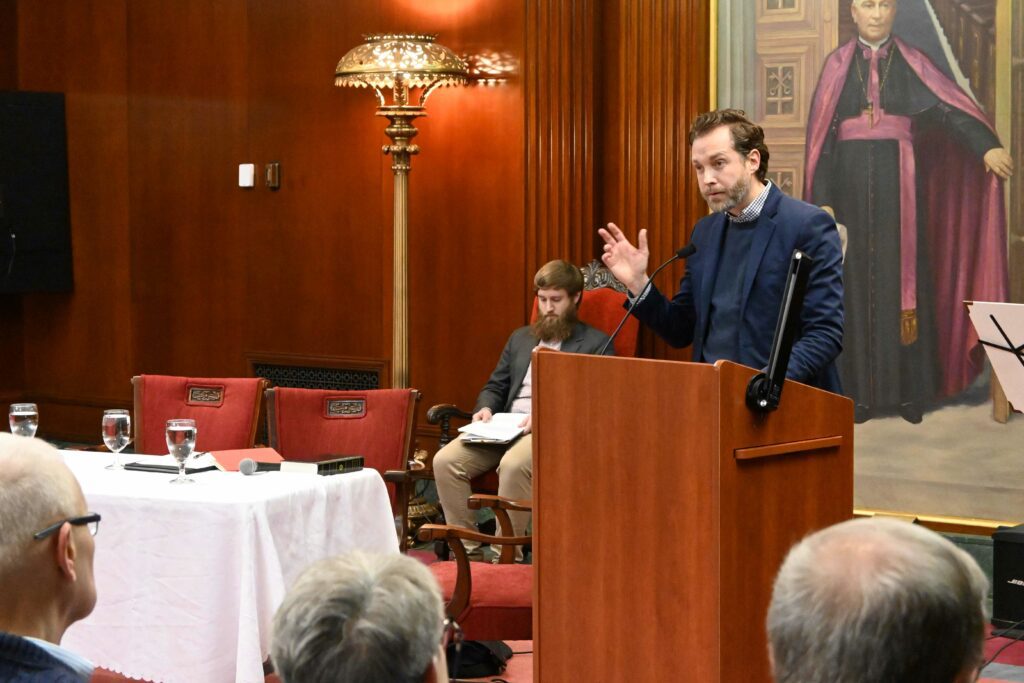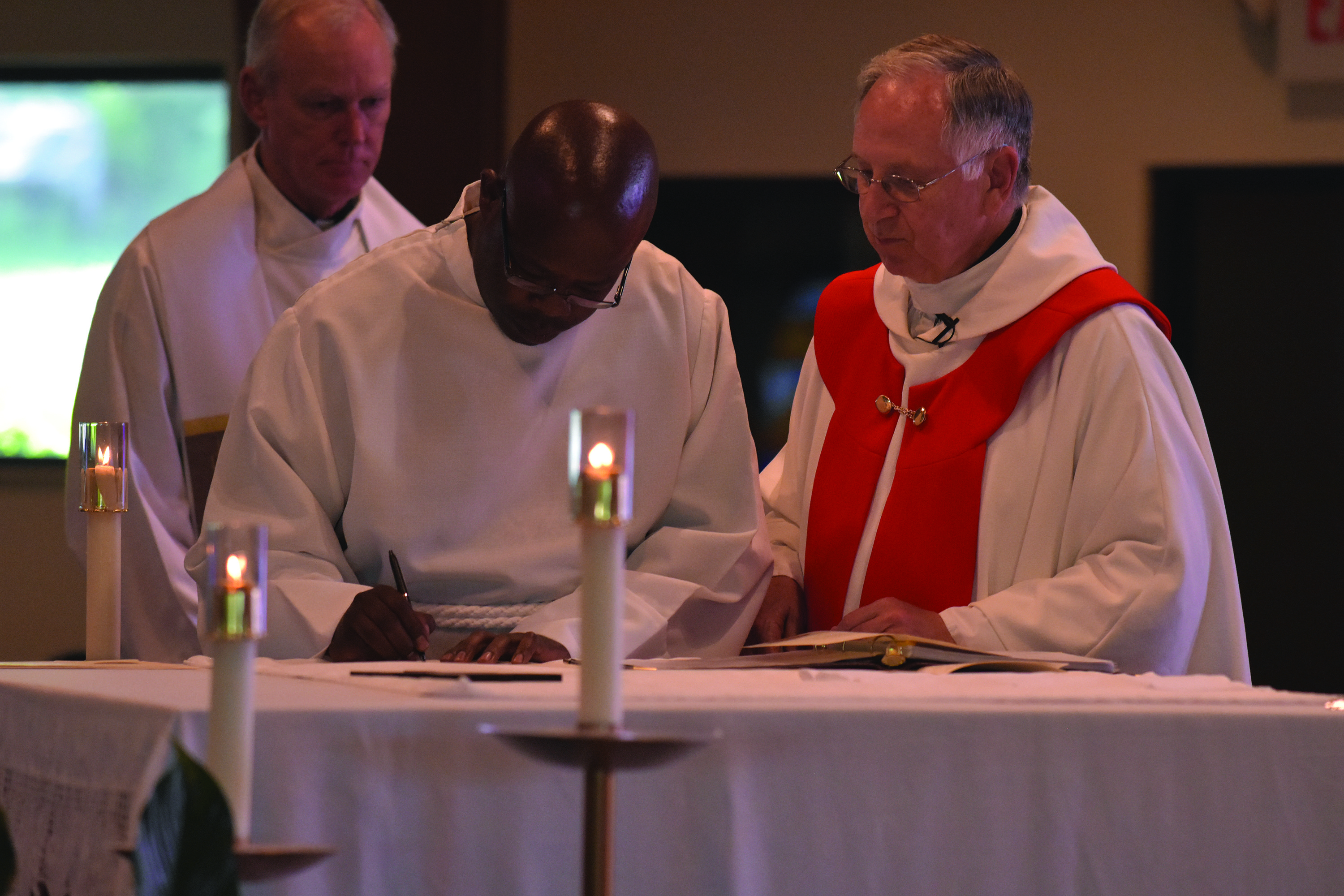How is a person saved? This was the question that theologians representing the Baptist, Lutheran and Catholic faith discussed in a panel forum co-sponsored by Glenmary.

Glenmary’s Nathan Smith leads an ecumenical discussion on Christian understanding.
The event took place on January 12, 2024, in a hall at the Cathedral Basilica of Saint Peter in Chains, in Cincinnati.
Nathan Smith, Glenmary’s Director of Ecumenism, said that the goal of the event was “bringing together Christian groups like the ones we had there: Missouri Synod Lutheran, Reformed Baptist and Catholic, to discuss points of difference and theologically in order to enhance the understanding that we have towards one another and hopefully build towards a deeper unity and reconciliation for the groups”.
Dr. Roland Ziegler represented the Lutheran position; Pastor Tim Scott, the Reformed Baptist, and Dr. Alan Mostrom exposed the Catholic perspective on the issue. Of course that question of how one is saved is the question of faith and works.
Opposing interpretations of the Bible’s teaching about salvation were a big cause of the Protestant Reformation: whether we are in union with God by God’s grace or, rather, by our own works. Lutherans and Catholics came to some agreement in 1999, saying that we all had misunderstood each other centuries earlier. That 1999 statement essentially acknowledges that God’s grace, God’s free love, comes first, but it compels us toward works of charity.
There is really not a unified understanding of this among Christians, which deeply affects the mission of Glenmary in rural Appalachia and the South. That divergent understanding of how we are saved was the backdrop of this January’s discussion in Cincinnati.
In addition to Glenmary, the event was organized by Jordan Bennett, from the Cedar Grove Baptist Church.
Glenmary’s Nathan Smith explained that the topic of “Justification” divides opinions in mainly two perspectives. “Some people think that it’s only by faith as a notional thing, like ‘I believe this and I’m saved. And others will say ‘faith is necessary, but how faith is expressed is also important and indicative that lived faith enhances the good works”.
The three panelists debated the issue before some 130 attendants.
—Omar Cabrera.

